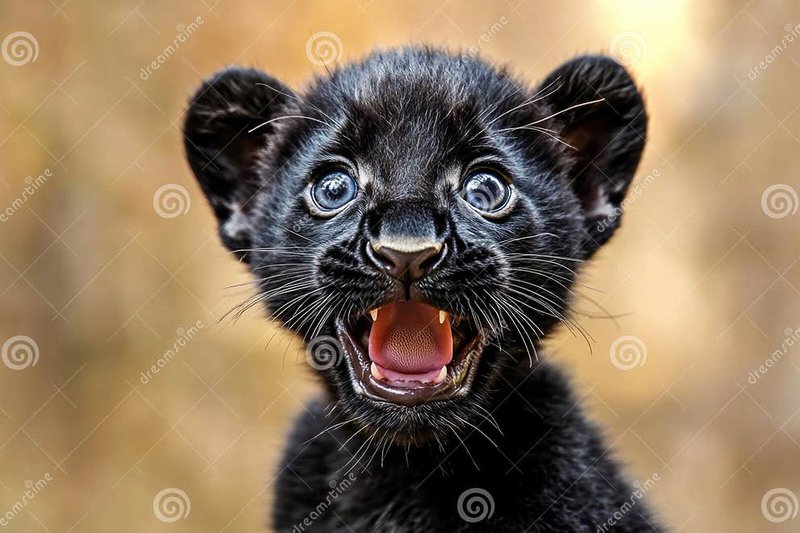
Imagine for a moment that you’re in a dense, green forest, and you come across a panther silently watching you. It’s not just observing; it’s calculating its next move. This idea of assessing and adapting to different situations reflects a deeper level of intelligence that these big cats have developed. So, let’s dive in and explore the cognitive world of panthers, looking at their behaviors, problem-solving skills, and social structures.
What Makes Panthers Intelligent?
When we talk about animal intelligence, we often think about problem-solving, memory, and learning from experience. Panthers, part of the big cat family, show all these traits. Their intelligence is primarily driven by survival instincts. They need to hunt effectively, avoid risks, and adapt to their environment.
Panthers are also known for their acute senses. Their sharp eyesight and hearing help them spot prey from a distance. This sensory perception is crucial for planning their hunting strategies. Imagine stalking your dinner while also keeping an eye out for potential threats—that’s exactly what a panther does. It’s this combination of sensory skills and cognitive reasoning that underscores their intelligence.
Another key aspect of their intelligence is their ability to learn. Panthers can adjust their hunting techniques based on previous experiences. For example, if a particular method doesn’t bring them success, they’ll modify their approach. This adaptability is a significant sign of cognitive ability and is essential for survival in the wild.
Problem-Solving Skills in Action
One fascinating aspect of panther intelligence is how they solve problems. Think about it: When a panther is hunting, it must think critically about how to approach its prey without being detected. They often use stealth and patience, waiting until the precise moment to pounce. This level of strategy shows a high degree of cognitive flexibility.
For instance, there’s a story about a panther that learned to use its surroundings to its advantage. By hiding behind trees or using thick grass as cover, it could approach unsuspecting prey without alarming them. It’s like playing a game of hide and seek, but the stakes are a lot higher. This ability to use the environment creatively shows not only intelligence but also an understanding of spatial awareness.
Additionally, panthers tend to have strong memory skills. They remember locations of food sources, waterholes, and even safe paths through their territories. If a panther finds a fruitful hunting ground, it’ll often return there in the future, knowing it’s a reliable resource. This kind of memory retention is crucial for survival, especially in habitats where food can be scarce.
Social Behavior and Communication
While panthers are typically solitary animals, their social behaviors also hint at their intelligence. They have distinct vocalizations such as growls, hisses, and even screams, which serve as communication tools among themselves. For example, a panther might growl to assert dominance or hiss when feeling threatened.
Their ability to communicate signals their emotional intelligence, allowing them to express discomfort or convey mating calls. It’s like having a personal language that conveys so much more than just words. This social behavior can be crucial, especially during mating seasons when attracting the right partner is essential.
Panthers also engage in territorial marking. They use scent markings to communicate with other panthers about their territory boundaries. This not only helps them avoid confrontations but also indicates their health and vitality to potential mates. This behavior reflects a level of cognitive planning, understanding the implications of their actions in a broader context.
Hunting Strategies and Skills
Let’s take a closer look at how panthers hunt and why their intelligence plays a pivotal role. These big cats are known for their exceptional stealth and camouflage skills. Their dark fur allows them to blend into the shadows of their environment, making them nearly invisible to both prey and predators.
Imagine waiting silently on a branch, watching your potential dinner move about unsuspectingly—this is how panthers operate. They often hunt at night, using their superior night vision to track and ambush animals like deer or wild boar. This nocturnal hunting behavior is not just instinctive; it’s a smart strategy that increases their chances of success.
What’s also interesting is how they adapt their hunting tactics based on the prey they’re targeting. If a panther is hunting smaller animals, it might rely more on speed and agility. Conversely, when hunting larger prey, they might use tactics that involve overpowering their catch. This adaptability in tactics showcases their problem-solving skills and strategic thinking abilities.
Comparative Intelligence: Panthers vs. Other Big Cats
When comparing panthers to other big cats, like lions or tigers, their intelligence showcases unique adaptations. For instance, lions often hunt in groups, which reflects a different type of social intelligence and teamwork. In contrast, panthers rely on solitary hunting strategies, which showcases their ability to function independently.
Tigers, on the other hand, are also solitary hunters but tend to have different approaches based on their habitats. They might favor a more direct ambush strategy, relying on sheer strength. Panthers, however, often display a blend of stealth and strategy, pulling off calculated moves that require both intelligence and skill.
So, how do we gauge their intelligence comprehensively? It’s not just about how effectively they hunt but how they adapt and learn from their experiences over time. Each species has its strengths and weaknesses, showing that intelligence in the animal kingdom can manifest in various ways.
Conservation and the Future of Panther Intelligence
As we think about panther intelligence and behavior, it’s essential to consider the challenges they face in the modern world. Habitat loss, poaching, and climate change threaten their survival, which also jeopardizes their ability to learn and adapt. When panthers lose their natural habitats, they struggle to find food, mates, and safe living conditions.
Conservation efforts are critical to ensuring that panthers can continue to thrive. Protecting their habitats allows these intelligent creatures to maintain their hunting strategies and social behaviors. By creating preserves and safe environments, we can support their natural instincts and cognitive abilities.
Moreover, understanding panther intelligence helps motivate conservation efforts. The more we know about their behaviors and skills, the more we can appreciate their role in the ecosystem. This appreciation can foster a public desire to protect them and their environments for generations to come.
In conclusion, panthers are more than just beautiful predators; they embody a rich tapestry of intelligence and adaptability. Their cognitive abilities, problem-solving skills, and unique behaviors make them fascinating creatures worthy of respect and protection. By learning more about them, we can better appreciate the complexities of their lives and the importance of conserving their habitats. As we continue to study these incredible animals, let’s strive to ensure they thrive in the wild, using their intelligence to navigate the challenges ahead.

